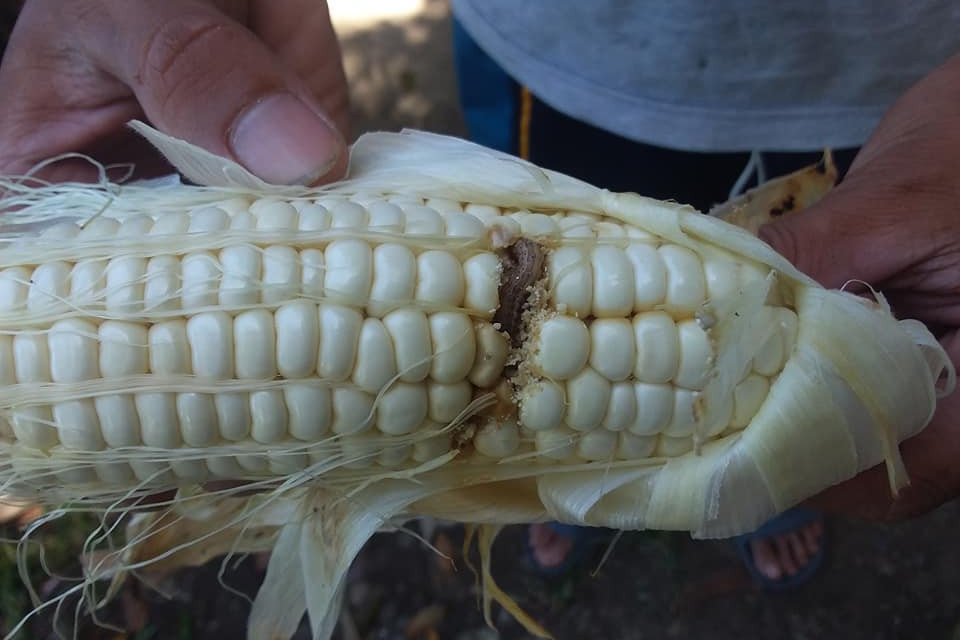General News
29 February, 2020
Invasive worm is marching towards the Tablelands
The Fall armyworm, a moth-like caterpillar, has now been confirmed in a maize crop near Georgetown, 300 kilometres south west of Mareeba.

On Thursday the Queensland Government convened an urgent industry roundtable to discuss managing the serious threat posed by the exotic Fall armyworm. The round table took place in Brisbane and was available via teleconference to industry stakeholders.
The Fall armyworm, a moth-like caterpillar originally from the Americas, has now been confirmed in a maize crop near Georgetown, 300 kilometres west of Cairns.
This detection follows recently confirmed detections on two Torres Strait Islands and in Bamaga on the tip of Cape York.
Minister for Agricultural Industry Development and Fisheries Mark Furner said “This is disappointing but not entirely unexpected after recent detections in the Torres Strait and at Bamaga,”
“It means the pest is likely to be widespread across northern Australia and eradication is therefore not possible.
“After the drought, bushfires and floods, this is the last thing our producers need but we must tackle it with all available resources.”
Fall armyworm is an invasive moth that feeds on hundreds of plant species, including maize, rice, sorghum, sugarcane and wheat, other horticultural crops and cotton. It can fly up to 500 kilometres and has spread quickly around the world.
Katter’s Australian Party Leader and Traeger MP Robbie Katter has warned Australia is facing a potentially “cataclysmic” biosecurity threat, with confirmation a dangerous exotic pest with the ability to wipe out agricultural crops has arrived and is spreading across mainland Australia.
Mr Katter said the news was sending shockwaves through the agricultural industry, and there were growing concerns the worm’s tendency to eat more than 350 crop species including corn, wheat, rice, sugarcane and vegetables could threaten local food security.
Mr Katter said it was infuriating Biosecurity Queensland was only now reacting to the pest’s arrival, with an emergency roundtable meeting.
“In the past, the Fall armyworm has been known to reduce crop yield by 50 per cent.”
“Biosecurity Queensland’s failure to prepare for what is coming instead of reacting once it gets here is a clear symptom of the state’s weak biosecurity protections, which are a result of continued ignorance from policy-makers in Brisbane,” he said.
“Biosecurity in Queensland is grossly under-funded, and we are seeing constant reductions in the number of staff who are actually on the ground identifying problems before and when they arrive.
Mr Katter said, since growers have had little to no time to prepare for the Fall army worm’s arrival, insecticides would likely be their only defence in controlling the infestation in the short-term.
“I understand control work on the most recent Fall armyworm infestation located on the Gilbert River cost 10 times more than the usual insecticide costs for controlling the pest load on maize.”
Mr Katter said the use of insecticides could have been greatly reduced had there been a more proactive approach and better planning regarding a local infestation, including more research on the use of natural predators.
“Investigations could have also been well-advanced on possible biological control options to form part of a more integrated approach in the longer term, but instead we continue to keep playing the catch-up game,” he said.
Mareeba Chamber of commerce President Joe Moro agrees “we need a very strong Bio-security system and there have been substantial cuts to funding over the years.
“It continues to highlight the importance of making sure that we pick up pests early so that we can eradicate them before they become a major problem.“
For information about on-farm biosecurity measures to protect crops from pests and diseases, visit farmbiosecurity.com.au
Industry and the public are urged to report suspect detections of Fall armyworm moths and larvae to the national Exotic Plant Pest Hotline on 1800 084 881
For more information, including pictures and how to identify fall armyworm, visit Biosecurity Queensland



